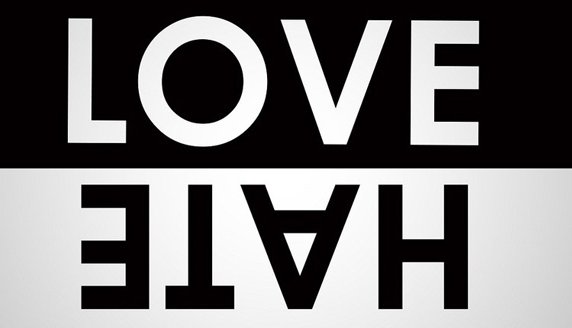“I hate ads, who likes to see ads?”
Recently my mother came to visit me in Taipei. On the drive from the airport we talked about my startup, Bubbleye, and how we predict a user’s interests in mobile ads. Her response: “I hate ads, who wants to see ads?”
She’s right, no one wants to see intrusive popup ads. People hate advertising, especially digital. It is seen as both annoyingly intrusive and ethically unacceptable in its casual invasion of privacy. Yet despite all this advertisements are human inventions, labors of love and ingenuity.
“Doublethink means the power of holding two contradictory beliefs in one’s mind simultaneously, and accepting both of them.”
George Orwell, 1984
For those of us working in the advertising we both despise advertising, yet enjoy our jobs. As creators of the ad world this doublethink is our reality. We love ads, we hate ads. I love my job, yet I also encourage my friends to use ad blockers to improve their browsing experience. In Orwell’s 1984, doublethink is a propaganda tool used to edit understanding of truth, yet I see it also as a sophisticated way of understanding the world. To accept two opposing views is to have both knowledge and faith in the forces of the industry to naturally stabilize between the two. Similar to faith that supply and demand’s equilibrium is a place we want to be, I trust that the ad industry will maximize both ad supported free content and enjoyable browsing experiences.
So, lets break down these two sides of love and hate for the ad industry and see what we think the future might hold.
Did you know that ‘apology’ used to mean not an admission of guilt but a defense of one’s position? Plato’s Apology is a retelling of Socrates’s self defense at his trial. As a way of tying together the love and hate of the ad world, I would like to deliver both the modern apology and older definition of an apology for advertising.
I Hate Ads: An Apology for Advertising
The picture below is a screen cap of the highly personalized invasive advertising of the future as portrayed in 2002’s Minority Report.

Ads which cause unsolicited intrusions into your life which produce negative experiences is the cardinal sin of the advertising industry. Louis D. Lo Praeste recently articulated this “ethical conundrum” of the ad world’s ability to inject advertising into every opportunity in the digital experience but only with the hope of a positive user experience and the reality of mostly negative experiences.
The second great sin of advertising is violation of privacy. Societies are still deciding where it is an isn’t appropriate for advertising to collect information, but this effort to understand big data behind advertising is obfuscated by the unseen world of data collection. In addition, it is difficult to decide where to draw the line about individual pieces of nearly meaningless data, which once collected and analyzed can show potentially sensitive information about an individual. Society still has difficulty fathoming what it means that corporations can know my name, friends, locations, habits, and interests.
I Love Ads: An Apology of Advertising
“The best minds of my generation are thinking about how to make people click ads. That sucks.”
–Jeff Hammerbacher, 2011
Hammerbacher’s infamous quote is where I would like to start my apology of advertising. That advertising generates wealth for small businesses and content creators is something that is well understood and currently being discussed across many digital mediums. Less popular are the ideas that advertising both spreads information and breeds innovation.
Seeing an ad spreads information. Given that information is of high value and true, this is an extremely positive thing. The information is being spread in a non natural way, funded by money. Marketing campaigns can help the smallest and biggest players accelerate their natural word of mouth growth. Thus more efficient advertisements are more efficiently accelerating economic growth. For example, Tesla’s ability to hype its products is not only accelerating their growth, but accelerating the mainstream acceptance of electric vehicles around the world. This of course can have runaway effects and has caused governments to regulate commercials targeted to children, or possibly addictive activities. Advertising’s power to spread of information is overall a positive effect as it is moderately regulated.
Advertising breeds innovation because that is where the money is ready to be spent. While that may seem materialistic, some ad product concepts are expensive and difficult to develop. Capital support is necessary for research and development, which will later spread to other sectors. For example, big data research has been at the forefront of adtech companies. These innovations benefit machine learning and data mining in other industries which are not directly related to advertising yet benefit from this boon of advances.

Conclusion: Accepting Evolution
The evolution of the advertising industry is not lockstep with the society’s understanding of the advertising industry. Advertising has evolved so fast that society is currently still grappling with the wider implications of these changes. It is important for both insiders and outsiders to understand the forces moving advertising, and weigh the benefits and costs. This evolution of the advertising industry can be influenced by those outside of it, as it is currently by the uptake in ad blocking technology. This is a positive force that should be accepted. At the same time ad industry insiders are evolving the industry to show less but more targeted advertising. Balanced together these forces push advertising, innovation and society to better places.
